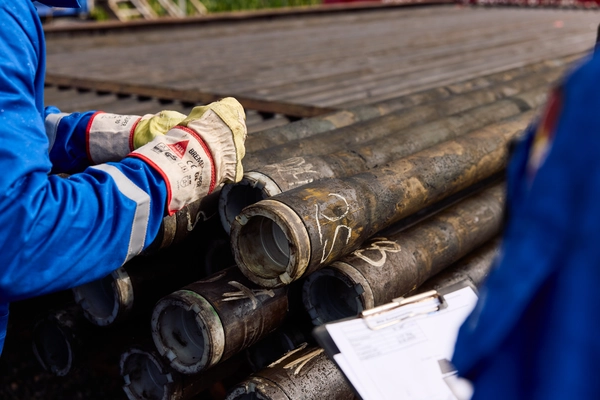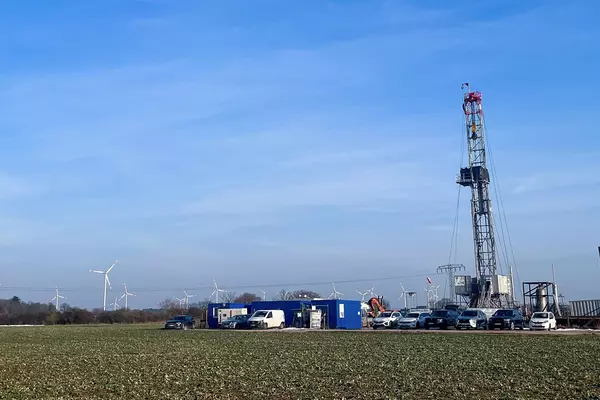Lithium production in the Altmark region generates potential gross value added of €6.4 billion
Neptune Energy commissioned experts from IW Consult to determine its socio-economic footprint
Hanover/Salzwedel. Raw materials producer Neptune Energy has been in the pilot phase of lithium extraction in northern Saxony-Anhalt since 2024. On its behalf, experts from the management consultancy IW Consult have examined the potential socio-economic effects over the entire project period. According to their findings, if the project produces up to 25,000 tons of lithium (LCE) annually, the gross value added across Germany for the years 2025 to 2042 could total €6.4 billion. According to the assumptions of the experts at IW Consult, the project could create up to 1,500 jobs annually.
Andreas Scheck, CEO of Neptune Energy, explains: “Even though we are currently still in the development phase of the project, the socio-economic numbers clearly show the potential that lithium production will bring in the coming decades. There could be significant positive effects for the Altmark region and beyond.”
Lithium project has the potential to boost Altmark economy by two percent annually
According to the study, the lithium project in the Altmark region has the potential generate gross value added of €6.4 billion across Germany in the period from 2025 to 2042. Around two-thirds (67.4 percent) of the potential value added will be generated in the Altmark region, which could lead to regional gross value added to rise by an average of two percent annually during the period under review.
Economic significance increases as the project progresses
The development phase until 2028 is characterized by a gross value added effect of €45.3 million in total, with a high proportion of indirect effects from intermediate consumption in raw material extraction, research, and information services. In the investment phase (2028–2032), the total gross value added effect will rise to €852.6 million, with the majority attributable to indirect effects, as extensive investments will be made in infrastructure and technology. In this phase, more than 1,500 jobs per year will be related to the project, around 13 percent of which will be in the Altmark region. The funding phase will begin in 2033, generating gross value added of €548.8 million per year, 75 percent of which will be generated regionally in Altmark.
Relevant contribution to security of supply amid growing demand for lithium
In its study, IW Consult also examined aspects of strategic raw material supply. Benita Zink, analyst at IW Consult, explains: "Lithium is a key raw material for numerous industries, especially for the manufacture of lithium-ion batteries used in electric vehicles and stationary energy storage systems. In addition to battery production, lithium is also used in the chemical industry, for specialty plastics, and in glass ceramics. Germany is currently highly dependent on imports for lithium and products made from it, such as lithium-ion batteries. The planned lithium mining in the Altmark region by Neptune Energy can make an important contribution to security of supply and help to meet European demand for critical raw materials through domestic production, thereby reducing risks from geopolitical dependencies.” Forecasts by the International Energy Agency (IEA) show that global demand could rise between 240 and 490 percent by 2035, depending on the scenario.
About Neptune Energy's lithium project
The Altmark region has a long tradition of energy and raw materials production. Neptune Energy and various predecessor companies have been extracting natural gas here since 1969. Since 2024, the company has been using an environmentally friendly process called direct lithium extraction (DLE) from deep water – without open-cast mining, without evaporation ponds, and with minimal land requirements.
In August 2025, the second pilot test for direct lithium extraction was successfully completed with partner Lilac. Battery-grade lithium was produced from the deep waters of Altmark using the ion exchange process. A third pilot test has been running since mid-September to evaluate an adsorption process from a technical perspective. The pilot phase will be followed by a demonstration phase, in which the use of a fully integrated extraction plant will be tested as the next step towards commercial production. These subsequent steps will be subject to further mining law approval procedures.
In August 2025, the company had the resource base for the project determined by the internationally renowned and independent evaluation company Sproule ERCE (Standard CIM / NI43-101). As a result, the experts determined that a proven deposit of 43 million tons of lithium carbonate equivalent (LCE) can be assumed. This means that northern Saxony-Anhalt is home to one of the world's largest project-related lithium resources.
About the study
The study by IW Consult analyzes the potential economic footprint of Neptune Energy's planned lithium mining in the Altmark region. The aim is to measure the economic effects of the lithium project and quantify them in regional and macroeconomic terms. In addition to the direct effects that arise immediately at Neptune Energy, the indirect effects along the upstream value chain and the induced consumption effects are also taken into account. The effects are measured in terms of employment and gross value added – gross value added corresponds to the production value (comparable to turnover) minus the intermediate inputs purchased and thus reflects the value contribution of the project. In addition, the study highlights the role that the extracted lithium plays in downstream economic sectors, how demand for the raw material is developing, and the contribution Neptune Energy can make to meeting the demand for lithium.
Neptune Energy's lithium project is divided into three consecutive phases for the study: a development phase, an investment phase, and a production phase. In order to quantify the potential overall effect, the impact of the production phase is taken into account in addition to the development and investment phases, with an initial assumption of a ten-year production period. In reality, however, this period may be significantly longer.
The Institut der deutschen Wirtschaft Köln Consult GmbH (IW Consult) is a consulting firm within the German Economic Institute and part of an efficient network. At the interface between science and practice, IW Consult develops customized comprehensive solutions for relevant economic and socio-political issues. IW Consult employs around forty people at its locations in Cologne and Berlin.
About Neptune Energy
Neptune Energy is one of the leading raw materials companies in Germany. With over 135 years of experience, we secure supplies for industry and society. Our goal: Today we produce what counts tomorrow. Around 480 employees in many regions of Germany and at our headquarters in Hanover are involved in three key areas of activity
Base - Gas & Oil: safe and reliable production of domestic energy resources
Balance - Plugging and abandonment: taking responsibility for the past and restoring nature
Boost - New Energy: actively shaping the future, for example with lithium from Germany
This is how we combine experience with progress. Neptune Energy's revenue in the 2024 financial year was €440 million. The total annual production of gas and oil was 5.5 million barrels of oil equivalent (boe).




